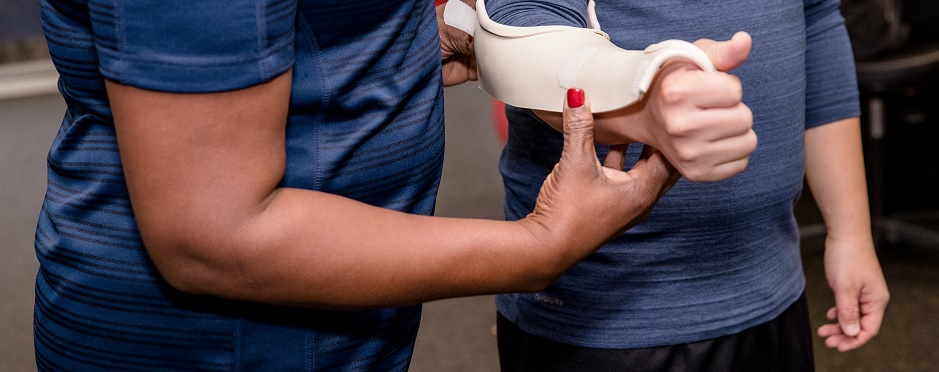
Q and A with an Occupational Therapist
Leave a CommentDuring Occupational Therapy Month, we sat down with OT health expert Erik Krol to discuss what is Occupational Therapy and what you can expect in regard to your recovery.
Q: What is Occupational Therapy?
A: Occupational Therapy, or ‘OT’, is a discipline of healthcare that works with people who have physical or cognitive disabilities and specializes in restoring their function. By doing so, OT attempts to promote and increase participation, independence, and increased abilities for daily activities. In short, OT works to optimize one’s abilities in coordination with their environment for optimal performance.
Q: What type of training or education is required to be an Occupational Therapist?
A: Occupational Therapists attend school to study health sciences and courses to better understanding human psychology, sociology, anatomy, and research and evidence. Credentials have changed over the last few decades within the profession. Depending on someone’s experience, they may hold a Bachelor’s, Master’s, or a Doctorate of Occupational Therapy degree. All therapists must be licensed within the state(s) in which they practice, and many hold board certifications or specialty certifications.
Q: My doctor recommended I begin an Occupational Therapy program. What can I expect?
A: This depends on where you will be receiving your services. However, you can expect to have an evaluation that will assess your ability to perform basic or activity-specific tasks, followed by an individualized rehab plan to improve the areas where you are most dysfunctional. Here at Athletico, OT includes an evaluation for an upper extremity injury. Your therapist will measure your body’s mobility, strength, sensation, and abilities to perform specific tasks. You will then work with your therapist to create a custom program to restore any limitations with progressions towards your goals. You will most likely receive exercises at home to enhance your therapy program. Your therapist will show you stretches, perform massage, teach you exercises, mobilize muscles, or use tools to manage pain and maximize your body’s abilities.
Q: I broke my bone and need a splint. Can I work with an OT to obtain one?
A: Yes. Occupational therapists are trained to fabricate custom-made orthoses or splints to protect and restore injured body parts. Therapists are trained to use special hard plastics, strapping, and other materials to design and form a device specific to your recovery needs. . Don’t worry; we are able to adjust as your body changes and recovers. This may even include making an adaptive device to help perform more independently after an injury.
Q: Who else might an Occupational Therapists work with?
A: Occupational Therapists work alongside other disciplines of the health care team. Depending on your needs, an OT might be the only provider, or they might make up part of the team that oversees and provides care to improve your function and abilities. Some common co-workers of the health care team included: doctors, physician assistants, physical therapists, rehab technicians, and insurance specialists; the list can go on depending on your health and rehabilitation.
Our experts can help you at every turn
We pride ourselves on delivering exceptional service to help you get back to living a healthy and active lifestyle. Our highly trained hand therapists aim to improve your mobility and range of motion through effective treatment of conditions that affect your hands or upper extremities. If you are experiencing pain in the hand, wrist or elbow, schedule a free assessment. Free Assessments are available in-clinic and virtually through our telehealth platform.
*Per federal guidelines, beneficiaries of plans such as Medicare, Medicaid, Tricare, VHA and other federally funded plans are not eligible for free assessments.
The Athletico blog is an educational resource written by Athletico employees. Athletico bloggers are licensed professionals who abide by the code of ethics outlined by their respective professional associations. The content published in blog posts represents the opinion of the individual author based on their expertise and experience. The content provided in this blog is for informational purposes only, does not constitute medical advice and should not be relied on for making personal health decisions.
